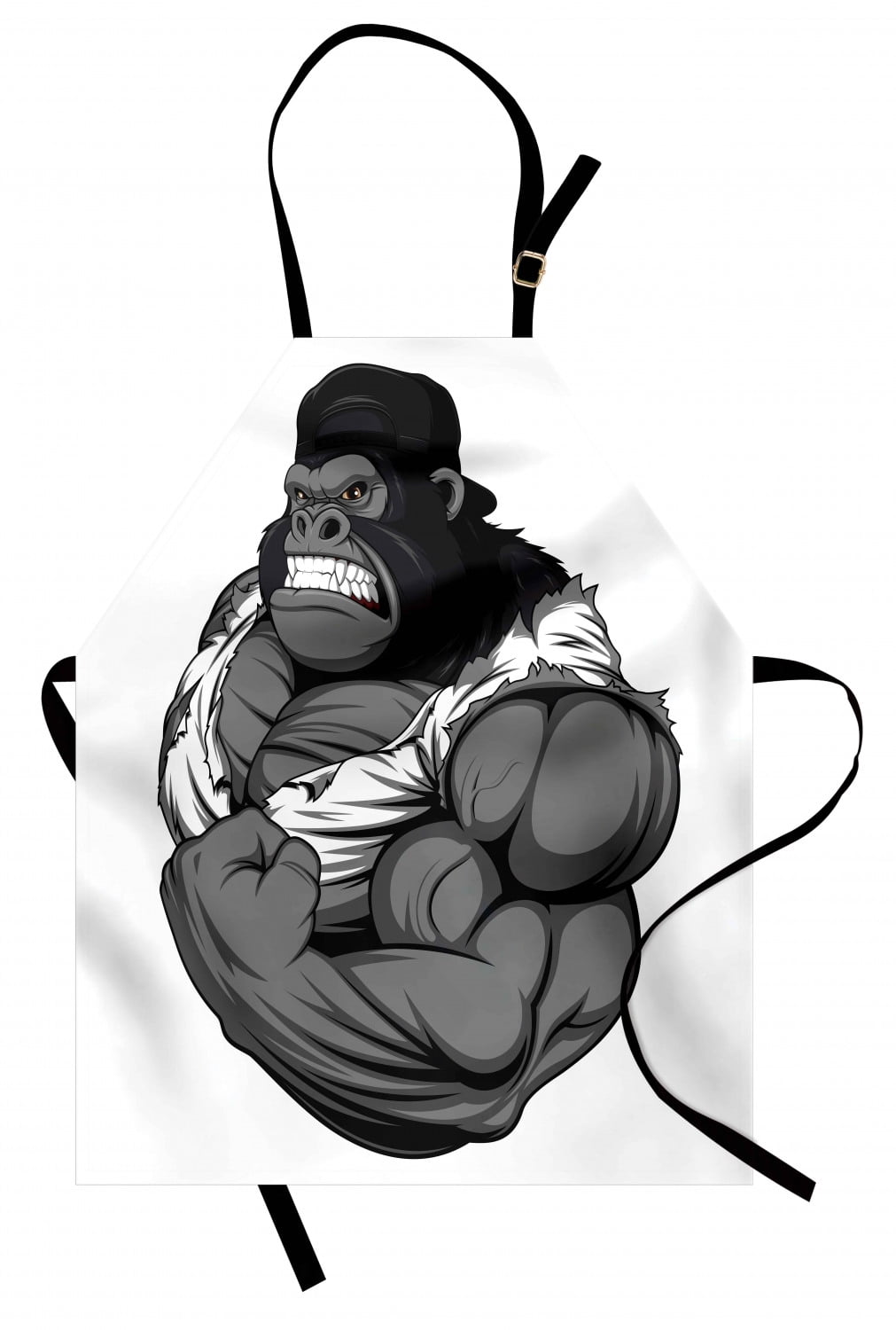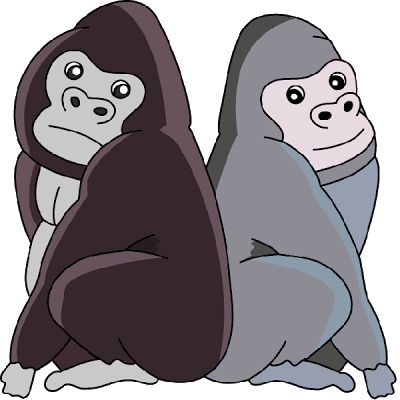
Ricochet Rabbit (voiced by Don Messick) works as a sheriff in a Western setting called Hoop 'n' Holler. The Magilla Gorilla Show perpetuated the idea that non-whites should be segregated. The trials of Magilla mirrored the attitudes that American citizens had towards racial integration during the Civil Rights Movement in the 1960s. Unfortunately, she could never persuade her parents to let her keep Magilla, Magilla often ended each episode with his catchphrase "We'll try again next week." The only customer who was truly interested in obtaining the trouble-prone ape for good was a little girl named Ogee ("Oh Gee!"). The customers always ended up returning Magilla, forcing Mr. Peebles marked down Magilla's price considerably, but Magilla was invariably only purchased for a short time, typically by some thieves who needed a gorilla to break into a bank or by an advertising agency looking for a mascot for their new product.
CARTOON GORILLA SUSPENDERS SERIES
From 1970 through 1971, he also appeared in a series published by Charlton Comics which ran only five (5) issues.Magilla Gorilla (voiced by Allan Melvin) is a gorilla who spent his time languishing in the front display window of a pet shop run by Melvin Peebles (voiced by Howard Morris), eating bananas and being a drain on the businessman's finances.

Also in 1964, he appeared in a one shot comic called The Magilla Gorilla Kite Fun Book from the same publisher. From 1964 through 1968, he appeared in a series published by Western Comics the series ran for ten (10) issues. Magilla Gorilla also appeared in comic books. 1965, having sixteen (16) episodes for a total of thirty-one (31) episodes! The show itself ran for two seasons, with the first season, 1964, having fifteen (15) episodes and the second season. I also like the fact that each of the players get to be Magilla, rather than just a generic marker. The board itself is great, with lots of shots of Magilla himself spread about.

The object of the game was to get rid of all your pet cards, with the first to do so winning the game! Here is the board game, so you don’t have to image it:Īs you can see, but probably can’t read, from the picture above, the colored spaces represented the individual pets. As the players made their way around the board, if they landed on a pet space and had that pet in their hand the pet would be placed in the Pet Shop. There were five (5) pet cards each, representing a bunny, a turtle, a donkey, a duck, a mouse, a monkey, a parrot and a cat. Prior to the game Pet Cards were shuffled and dealt to the players. One interesting twist is that the player could move their Magilla Gorilla in any direction, as long as they move the correct number of spaces. In turn, each of two to four players spins the spinner and move their Magilla Gorilla marker the indicated number of spaces. Sorry but I don’t remember the weiner dog’s name on the left. Peebles’ who is slipping on a banana peel on the right. Here is the box top:Īs you can clearly see, Magilla is front and center and that’s the Pet Shop owner, Mr. During the cartoon’s theme song, “We’ve Got a Gorilla for Sale”, she asks hopefully, “How much is that gorilla in the window?” (a twist on the old standard, “How much is that Doggie in the Window?”, but she unfortunately was never able to convince her parents to let her keep Magilla.īut back to the game. The only customer truly interested in obtaining the trouble-prone Magilla was a little girl named Ogee (pronounced “Oh Gee!”). Many of Hanna-Barbera’s animal characters were dressed in human accessories and as such, Magilla Gorilla sported a bow tie, shorts held up by suspenders, and an undersized derby hat.


Magilla often ended episodes with his catchphrase “We’ll try again next week.” The customers always ended up returning Magilla, forcing Peebles to refund their money. Peebles marked down Magilla’s price considerably, but Magilla was invariably only purchased for a short time, typically by some thieves who needed a gorilla to break into a bank, or by an advertising agency looking for a mascot for their new product. Magilla Gorilla was an anthropomorphic gorilla who spent his time in the front display window of Melvin Peebles’ pet shop, eating bananas and being a drain on the businessman’s finances. Yep, that’s right, a board game based on Magilla Gorilla, who is the star of The Magilla Gorilla Show by Hanna-Barbera Productions, Inc. And what did I find? Well, how about an original 1964 Magilla Gorilla Board Game by Ideal (No. Hey ho all, I’m back this week with a new Fabulous Find.


 0 kommentar(er)
0 kommentar(er)
